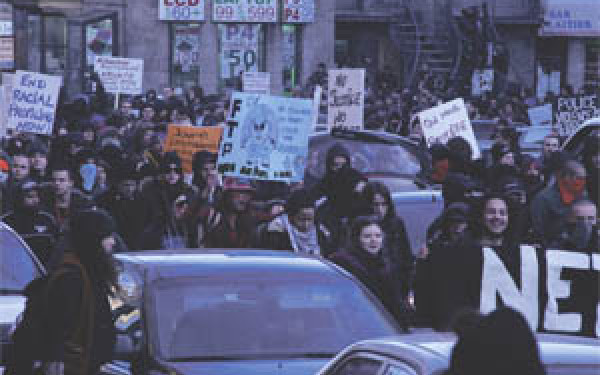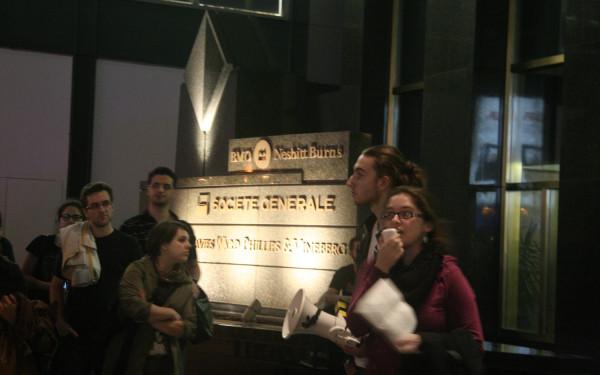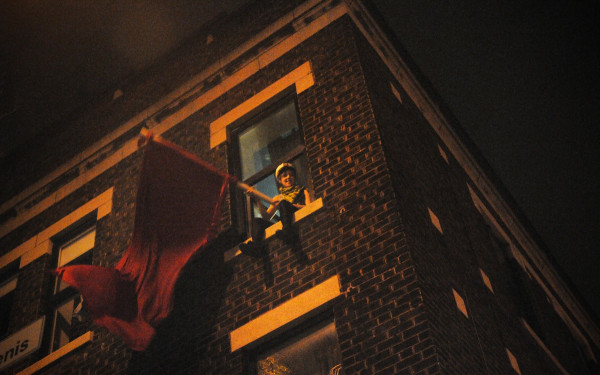Nuit Debout in Montreal
Demonstrators Gathered To Fight For Social Justice
Approximately 150 people gathered at the French Consulate in downtown Montreal to stand in solidarity with the French social movement Nuit Debout on Friday evening.
Nuit Debout is a social revolution that began in Paris after the French government announced a labour law reform that would increase the hours of the work week and take away social benefits like “family solidarity,” which allows workers who have a family member in a terminal phase to take three months off—among others disputed reforms.
— Video by Matt D’Amours
“If the movement in France became what it is today, it’s because government politics don’t benefit the majority anymore,” said Amir Khadir, a member of the Québec Solidaire political party. “The problem is linked to the power that the one per cent holds, which stands against the general interest of the majority,” he continued.
Since the first Nuit Debout demonstration on March 31 at the Place de République in Paris, the movement has spread internationally, beginning a revolution aiming to fight for social justice and equality.
In Montreal on McGill College Ave., the peaceful gathering started at 6 p.m. with speeches from demonstrators. The floor was open to anyone who wanted to speak on behalf of themselves or militant groups.
Some speakers brought up the notion that they’re fighting a larger battle to re-appropriate public spaces as safe spaces where anyone can be part of the political discourse and share their opinions and concerns.
A dozen people from different backgrounds took to the microphone to share their specific fights for social justice. Some of the topics echoing through the streets ranged from feminist discourses, the fight for a $15 living wage, to the First Nations peoples’ struggle for justice.
“These are the same preoccupations that touch the Québécois people,” said Khadir. “It’s the abandonment of the ruling political parties of its population to financial interests that are imposing undemocratic decisions to the people.”

3_900_576_90.jpg)
1_900_391_90.jpg)
2_900_515_90.jpg)
_600_832_s.png)

__600_375_90_s_c1.jpg)


